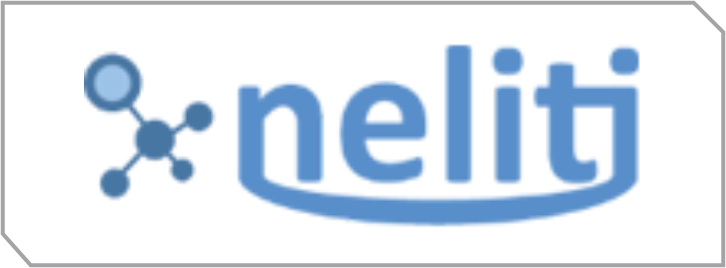Examining The Impact Of Pandemic-Induced Changes On College Student Productivity: A Quantitative Analysis
DOI:
https://doi.org/10.53748/jbms.v1i4.92Keywords:
Learning environment, Teaching methods, Expectations, Academic performance, COVID-19Abstract
Objective – This research aims to reveal if there is any difference in college students’ productivity during and after the COVID-19 pandemic. This research will examine the factors that influence students’ productivity at those times. The factors that will be discussed are the learning environment, teaching methods, and students’ expectations. Methodology – Using Smart-PLS software as a tool to examine validity and reliability, this study is quantitative in nature and 124 students in all took part in the survey for this study. The present study was conducted via an online platform, specifically Google Forms, in order to collect data from participants in an anonymous manner. Findings – The result highlights the teaching methods affect academic performance, while learning environment and students’ expectations did not. Novelty – This study focuses on examining the impact of the COVID-19 pandemic on college students’ productivity and the specific factors that influence this change. While there have likely been studies on the general impact of the pandemic on education, this research specifically delves into the productivity aspect and isolates learning environment, teaching methods, and student expectations as key factors. This targeted approach provides valuable insights into how the pandemic has affected students’ academic performance and what factors can be attributed to these changes.
Downloads
References
Adewale, B., Jegede, F., Okubote, F., & Olagbadegun, M. (2021). Impact of classroom environments on the academic performance of architecture students in Covenant University. IOP Conference Series: Earth and Environmental Science, 665(1), 012017. https://doi.org/10.1088/1755-1315/665/1/012017
Akinwande, M. O., Dikko, H. G., & Samson, A. (2015). Variance inflation factor: As a condition for the inclusion of suppressor variable(s) in regression analysis. Open Journal of Statistics, 5(7), 754–767. https://doi.org/10.4236/ojs.2015.57075
Al-Rawi, I. (2013). Teaching methodology and its effects on quality learning. Journal of Education and Practice, 4(6), 100-106.
Chicco, D., Warrens, M. J., & Jurman, G. (2021). The coefficient of determination R-squared is more informative than SMAPE, MAE, MAPE, MSE, and RMSE in regression analysis evaluation. PeerJ Computer Science, 7(5), e623. https://doi.org/10.7717/peerj-cs.623
Citra, B. S. A., Setiono, B., Pangaribuan, C. H., & Ambarwati, M. F. L. (2021). The influence of service quality on public satisfaction and public trust: A study on Jakarta public health services during COVID-19 pandemic. Journal of Business, Management, and Social Studies, 1(1), 48-57.
Closs, L., Mahat, M., & Imms, W. (2021). Learning environments’ influence on students’ learning experience in an Australian faculty of business and economics. Learning Environments Research, 25(1), 271-285.
Feldman, G., Chandrashekar, S. P., & Wong, K. F. E. (2016). The freedom to excel: Belief in freewill predicts better academic performance. Personality and Individual Differences, 90, 377–383.
Ganyaupfu, E. (2013). Teaching methods and students’ academic performance. International Journal of Humanities and Social Science Invention, 2(9), 29-35.
Hafeez, M. (2021). Impact of teacher’s training on interest and academic achievements of students by multiple teaching methods. Pedagogical Research, 6(3), em0102. https://doi.org/10.29333/pr/11088
Ijomah, M. A. (2019). On the misconception of R-square for R-square in a regression model. International Journal of Research and Scientific Innovation (IJRSI), 6(12), 71-76.
Koper, R. (2014). Conditions for effective smart learning environments. Smart Learning Environments, 1(5). https://doi.org/10.1186/s40561-014-0005-4
Kumar, N., Hossain, M. Y., Jin, Y., Safeer, A. A., & Chen, T. (2021). Impact of performance lower than expectations on work behaviors: The moderating effect of status mutability and mediating role of regulatory focus. Psychology Research and Behavior Management, 14, 2257–2270. https://doi.org/10.2147/prbm.s342562
Lamas, H. A. (2015). School performance. Propósitos Y Representaciones, 3(1), 351–386.
Mappadang, A., Khusaini, K., Sinaga, M., & Elizabeth, E. (2022). Academic interest determines the academic performance of undergraduate accounting students: Multinomial logit evidence. Cogent Business & Management, 9(1). https://doi.org/10.1080/23311975.2022.2101326
Masud, S., Mufarrih, S. H., Qureshi, N. Q., Khan, F., Khan, S., & Khan, M. N. (2019). Academic performance in adolescent students: The role of parenting styles and socio-demographic factors – A cross-sectional study from Peshawar, Pakistan. Frontiers in Psychology, 10. https://doi.org/10.3389/fpsyg.2019.02497
Mohamed, S. A., Ul-Saufie, A. Z., Ahmad, N., Ahmat, H., & Zahari, M. F. (2018). Factors influencing student absenteeism in the university. In Proceedings of the AIP Conference. https://doi.org/10.1063/1.5041713
Munawaroh, M. (2017). The influence of teaching methods and learning environment to the student’s learning achievement of craft and entrepreneurship subjects at vocational high school. International Journal of Environmental and Science Education, 12(4), 665–678.
Panitz, C., Endres, D., Buchholz, M., Khosrowtaj, Z., Sperl, M. F. J., Mueller, E. M., Schubö, A., Schütz, A. C., Teige-Mocigemba, S., & Pinquart, M. (2021). A revised framework for the investigation of expectation update versus maintenance in the context of expectation violations: The ViolEx 2.0 model. Frontiers in Psychology, 12. https://doi.org/10.3389/fpsyg.2021.726432
Pinquart, M., & Ebeling, M. (2020). Students’ expected and actual academic achievement – A meta-analysis. International Journal of Educational Research, 100, 101524.
Rajagopalan, I. (2019). Concept of teaching. Shanlax International Journal of Education, 7(2), 5-8.
Rief, W., Sperl, M. F. J., Braun-Koch, K., Khosrowtaj, Z., Kirchner, L., Schäfer, L., Schwarting, R. K. W., Teige-Mocigemba, S., & Panitz, C. (2022). Using expectation violation models to improve the outcome of psychological treatments. Clinical Psychology Review, 98, 102212.
Rusticus, S. A., Pashootan, T., & Mah, A. (2022). What are the key elements of a positive learning environment? Perspectives from students and faculty. Learning Environments Research, 26(1), 161-175.
Sarstedt, M., Ringle, C. M., & Hair, J. F. (2021). Partial least squares structural equation modeling. In C. Homburg, M. Klarmann, & A. E. Vomberg (Eds.), Handbook of market research (pp. 1-40). Springer. https://doi.org/10.1007/978-3-319-05542-8_15-2
Schildkamp, K., Van der Kleij, F. M., Keitink, M. C., Kippers, W. B., & Veldkamp, B. P. (2020). Formative assessment: A systematic review of critical teacher prerequisites for classroom practice. International Journal of Educational Research, 103, 101602.
Shahjahan, M., Ahmed, K. R., Al Hadrami, A., Islam, Md. R., Hossain, S., & Khan, Md. S. (2021). Factors influencing poor academic performance among urban university students in Bangladesh. International Journal of Evaluation and Research in Education (IJERE), 10(4), 1140.
Sharaievska, I., McAnirlin, O., Browning, M. H. E. M., Larson, L. R., Mullenbach, L., Rigolon, A., D’Antonio, A., Cloutier, S., Thomsen, J., Metcalf, E. C., & Reigner, N. (2022). “Messy transitions”: Students’ perspectives on the impacts of the COVID-19 pandemic on higher education. Higher Education. https://doi.org/10.1007/s10734-022-00843-7
Shrestha, N. (2020). Detecting multicollinearity in regression analysis. American Journal of Applied Mathematics and Statistics, 8(2), 39–42. https://doi.org/10.12691/ajams-8-2-1
Tsiplakides, I., & Keramida, A. (2010). The relationship between teacher expectations and student achievement in the teaching of English as a foreign language. English Language Teaching, 3(2), 22-26.
Yana, A. A. G. A., Rusdhi, H. A., & Wibowo, M. A. (2015). Analysis of factors affecting design changes in construction project with partial least square (PLS). Procedia Engineering, 125, 40–45.
Zhao, X., & Xue, W. (2023). From online to offline education in the post-pandemic era: Challenges encountered by international students at British universities
Downloads
Published
How to Cite
Issue
Section
License
Copyright (c) 2024 Journal of Business, Management, and Social Studies

This work is licensed under a Creative Commons Attribution 4.0 International License.
Authors retain copyright and grant the journal right of first publication with the work simultaneously licensed under a Creative Commons Attribution 4.0 (CC 4.0) that allows others to share the work with an acknowledgment of the work's authorship and initial publication in this journal.


















